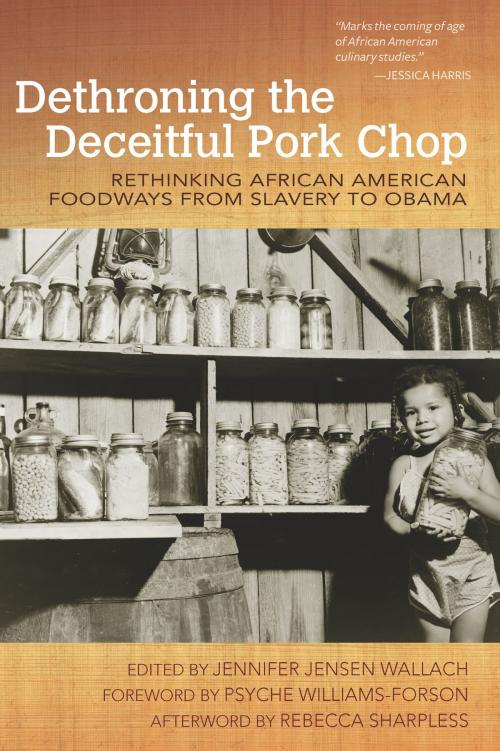Dethroning the Deceitful Pork Chop
Rethinking African American Foodways from Slavery to Obama
Nonfiction, Social & Cultural Studies, Social Science, Cultural Studies, Minority Studies, African-American Studies| Author: | Rebecca Sharpless | ISBN: | 9781610755689 |
| Publisher: | University of Arkansas Press | Publication: | September 11, 2015 |
| Imprint: | University of Arkansas Press | Language: | English |
| Author: | Rebecca Sharpless |
| ISBN: | 9781610755689 |
| Publisher: | University of Arkansas Press |
| Publication: | September 11, 2015 |
| Imprint: | University of Arkansas Press |
| Language: | English |
2016 Choice Outstanding Academic Title
2017 Association for the Study of Food and Society Award, best edited collection.
The fifteen essays collected in Dethroning the Deceitful Pork Chop utilize a wide variety of methodological perspectives to explore African American food expressions from slavery up through the present. The volume offers fresh insights into a growing field beginning to reach maturity. The contributors demonstrate that throughout time black people have used food practices as a means of overtly resisting white oppression—through techniques like poison, theft, deception, and magic—or more subtly as a way of asserting humanity and ingenuity, revealing both cultural continuity and improvisational finesse. Collectively, the authors complicate generalizations that conflate African American food culture with southern-derived soul food and challenge the tenacious hold that stereotypical black cooks like Aunt Jemima and the depersonalized Mammy have on the American imagination. They survey the abundant but still understudied archives of black food history and establish an ongoing research agenda that should animate American food culture scholarship for years to come.
2016 Choice Outstanding Academic Title
2017 Association for the Study of Food and Society Award, best edited collection.
The fifteen essays collected in Dethroning the Deceitful Pork Chop utilize a wide variety of methodological perspectives to explore African American food expressions from slavery up through the present. The volume offers fresh insights into a growing field beginning to reach maturity. The contributors demonstrate that throughout time black people have used food practices as a means of overtly resisting white oppression—through techniques like poison, theft, deception, and magic—or more subtly as a way of asserting humanity and ingenuity, revealing both cultural continuity and improvisational finesse. Collectively, the authors complicate generalizations that conflate African American food culture with southern-derived soul food and challenge the tenacious hold that stereotypical black cooks like Aunt Jemima and the depersonalized Mammy have on the American imagination. They survey the abundant but still understudied archives of black food history and establish an ongoing research agenda that should animate American food culture scholarship for years to come.















